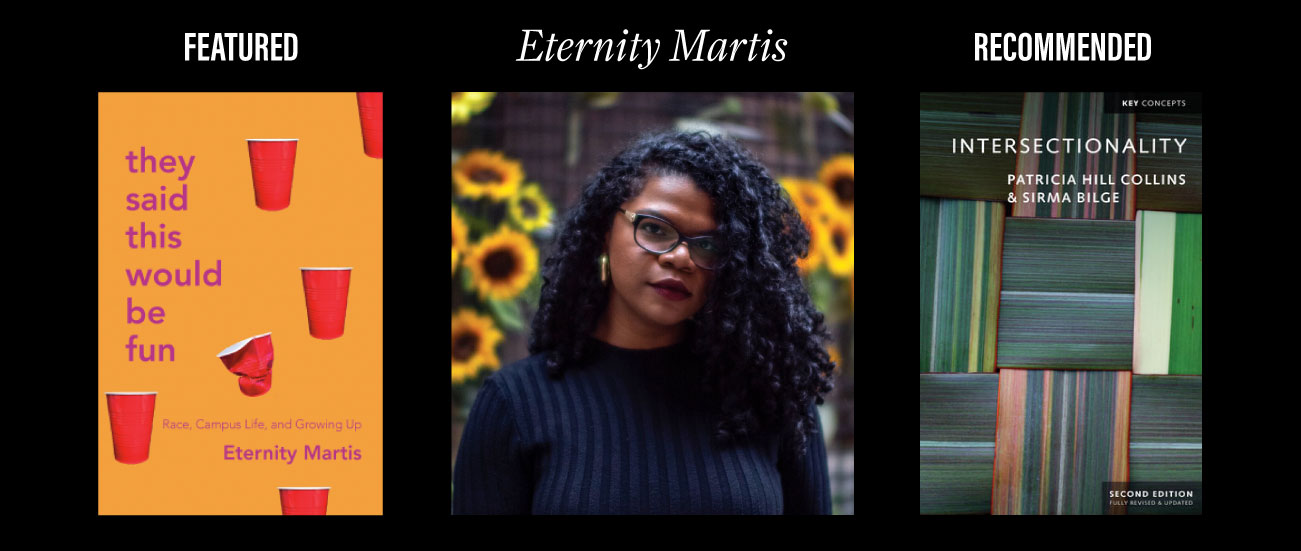
Eternity Martis’ Featured Book
they said this would be fun
A powerful, moving memoir about what it’s like to be a student of colour on a predominantly white campus.
A booksmart kid from Toronto, Eternity Martis was excited to move away to Western University for her undergraduate degree. But as one of the few Black students there, she soon discovered that the campus experiences she’d seen in movies were far more complex in reality. Over the next four years, Martis learned more about what someone like her brought out in other people than she did about herself. She was confronted by white students in blackface at parties, dealt with being the only person of colour in class and was tokenized by her romantic partners. She heard racial slurs in bars, on the street, and during lectures. And she gathered labels she never asked for: Abuse survivor. Token. Bad feminist. But, by graduation, she found an unshakeable sense of self – and a support network of other women of colour.
Using her award-winning reporting skills, Martis connects her own experience to the systemic issues plaguing students today. It’s a memoir of pain, but also resilience.
Buy the Book:
Owl’s Nest Books | Shelf Life Books
Eternity Martis’ Recommended Book
One of my favorite books is by Patricia Hill Collins, which talks about the stereotypes of Black women and how they have evolved but yet stayed the same.
Intersectionality, 2nd Edition by Patricia Hill Collins and Sirma Bilge
The concept of intersectionality has become a central topic in academic and activist circles alike. But what exactly does it mean, and why has it emerged as such a vital lens through which to explore how social inequalities of race, class, gender, sexuality, age, ability, and ethnicity shape one another?
In this fully revised and expanded second edition of their popular text, Patricia Hill Collins and Sirma Bilge provide a much-needed introduction to the field of intersectional knowledge and praxis. Analyzing the emergence, growth, and contours of the concept of intersectionality, the authors also consider its global reach through an array of new topics such as the rise of far-right populism, reproductive justice, climate change, and digital environments and cultures. Accessibly written and drawing on a plethora of lively examples to illustrate its arguments, the book highlights intersectionality’s potential for understanding complex architecture of social and economic inequalities and bringing about social justice-oriented change.
Intersectionality will be an invaluable resource for anyone grappling with the main ideas, debates, and new directions in this field.
Buy the Book:
